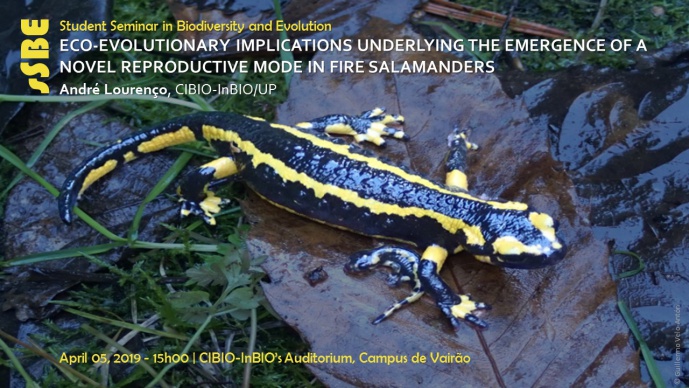ECO-EVOLUTIONARY IMPLICATIONS UNDERLYING THE EMERGENCE OF A NOVEL REPRODUCTIVE MODE IN FIRE SALAMANDERS

STUDENT SEMINAR IN BIODIVERSITY AND EVOLUTION

Shifts in reproductive modes across the tree life were accompanied by pronounced phenotypic, ecological, and genetic modifications. In this seminar, I will present the results of my PhD thesis, which is focused on understanding some of the eco-evolutionary implications (e.g. long-term persistence in harsh environments, changes on dispersal) underlying the shift from aquatic (larviparity) to terrestrial reproduction (viviparity). I used as a case study an urodele species (Salamandra salamandra) showing intra-specific variation in the reproductive mode.
André is a PhD student in the BIODESERTS group and he is currently enrolled in the last year of the BIODIV PhD Program, under the supervision of Guillermo Velo-Antón (CIBIO-InBIO) and Ian J. Wang (University of California, Berkeley). His thesis is focused on understanding some of the eco-evolutionary implications underlying the transition of reproductive modes in fire salamanders.
[Host: Guillermo Velo-Antón, Biodiversity of Deserts and Arid Region]
Image credits: Guillermo Velo-Antón